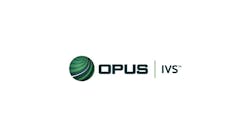TechForce Foundation, a non-profit organization focused on championing and aiding aspiring transportation technicians has released a new report — “Transportation Technician Supply Report” — that reveals the growing severity of the vehicle technician supply shortage.
Based on an analysis of National Center for Education Statistics’ (NCES) 2011-2016 data, TechForce found that post-secondary supply of new entrant vehicle technicians has not kept up with the spike in demand. Although the shortage has been ongoing, it became more severe in 2013 and the gap between supply and demand has continued to increase through the present. New entrant technicians are those needed to fill the growth in new positions in the occupation as well as replace those who leave the occupation. They are distinguished from experienced technicians who may move between employers but don’t add to the overall trained workforce in the occupation.
The report reveals that auto tech postsecondary completions have been declining since 2013. The supply of postsecondary auto graduates decreased by 1,829 completions in 2016 from 2012. There were an estimated 38,829 graduates for 2016 in contrast to the projected Bureau of Labor Statistics (BLS) new entrant demand of 75,900. Private sector institutions have experienced the greatest decline while public two-year institutions (primarily community colleges) have increased substantially.
The supply of collision technicians has been steadily declining over the past six years. Conversely, total postsecondary completions for diesel programs have increased over the same period. The projected BLS new entrant demand for diesel technicians is 28,300 annually against a supply of 11,966 in 2016. For the collision market, the projected BLS annual new entrant demand is 17,200 technicians compared to supply of 5,791 completions in 2016.
As to what can be done to alleviate the supply shortage, Jennifer Maher, CEO/executive director of TechForce said, “Our country and education system have divested in high school auto shops and stigmatized trade school education which is killing the trades. A big part of the problem is the outdated image of the ‘grease monkey’ mechanic that students and their parents, teachers and counselors may have. Today’s techs are well paid, highly skilled, hands-on problem solvers who are not burdened by massive school debt like their four-year school counterparts. As we change this image we can get more students interested in becoming technicians.”
Doug Young, co-author of the report and managing director of Wilcap L.L.C, said, “Changing perceptions will require building a pipeline into the industry—before parents and students have committed to ‘college for all,’ before students have decided that they aren’t interested in STEM subjects in high school, and before the old perceptions eliminate any interest among parents and career counselors in learning more about the opportunities in the transportation technician occupations.”
Greg Settle, the other co-author of the report and TechForce’s director of national initiatives, said, “With only a small percentage of students interested in going into a skilled trade versus seeking a college degree, the competition among all the skilled trades for those students is fierce. If you look at auto technicians, they can make a very solid, middle-class income. However, starting wages for auto technicians are among the lowest across the skilled trades, and that is often what young and men and women will focus on when making a career decision. Add to that the fact that entry-level technicians are expected to arrive at their first job with their own tools and it does not make the career very attractive, compared with other choices.”
According to Maher, “Without some form of focused, collective action, the transportation industry will continue to suffer from inadequately financed, fragmented efforts to solve these problems. A solution requires pooling resources and consistent public messaging to change perceptions and build a talent pipeline. TechForce Foundation is dedicated to providing the collective source of action to solve the root causes of the problem.”
This report, along with last year’s demand report, are examples of how TechForce works to create awareness of the problem, provide credible data to support the industry’s claims, and with even greater industry participation, improve the range and quality of these services.
Funding for the report was provided by TechForce donors, including Advance Auto Parts, Autoshop Solutions, AutoZone, Babcox Media, Bridgestone Retail Operations, Cengage, General Motors, George Arrants Enterprises, Interstate Batteries, Nissan North America, Manheim, Shell Lubricants, Snap-on, S/P2, Sunstate Equipment, Toyota Foundation, Universal Technical Institute, Valvoline, WD-40 and 10 Missions Media.About TechForce Foundation
TechForce Foundation is a nonprofit, 501(c)(3) with the mission to champion students to and through their education and into careers as professional technicians in the transportation industry. The Foundation distributes more than $1.5 million in scholarships and grants annually, thanks to its generous corporate sponsors and donors, and is spearheading FutureTech Success™, the industry-wide initiative to help encourage and support more young people to pursue the vehicle technician profession. For more information, visit www.techforcefoundation.org.


